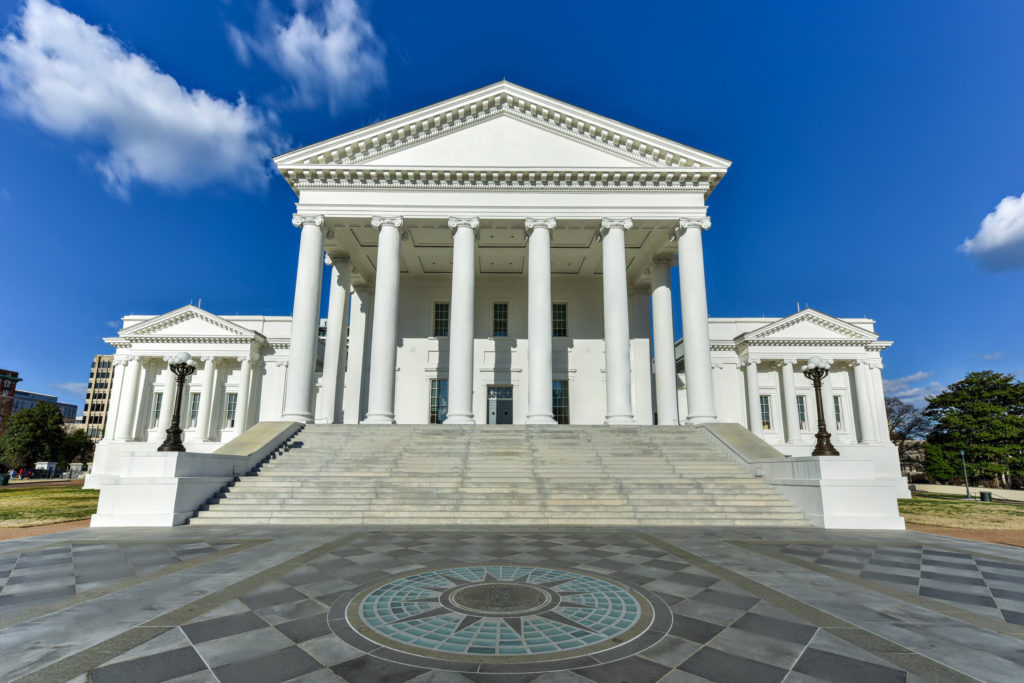As Virginia’s cannabis legislation moves through the 2021 General Assembly, lawmakers debate a legalization timeframe, and advocates call for stronger equity provisions. A delay of legalization until 2024 has been proposed in order to provide time to create a regulatory body and marketplace.
On Jan. 26, Jenn Michelle Pedini, Virginia NORML executive director and NORML development director, expressed concern to Outlaw Report with the possible “delayed enactment of legal possession and personal cultivation until the date when the state is prepared to begin retail sales. Neither of these provisions require an operational retail market, and such a delay will only exacerbate the disproportionate criminalization of Black and Brown Virginians.”
On Jan. 28, a senate panel changed course and endorsed legalizing cannabis possession as soon as this July, before a legal market would be in place.
Pedini said one thing the legalization bills get right is expungement: “The administration’s bills, along with the Governor’s proposed budget, include the automatic expungement of misdemeanor marijuana possession records.”
Virginia NORML opposes HB 2315, which was introduced on Jan. 21. While the current legalization bills allow localities to opt-out of hosting cannabis retail business, this new bill goes further, and would allow complete local prohibition of legal possession through a voter referendum.
Advocacy group Marijuana Justice calls for several changes to the legalization bills in play, including a 30% to 70% increase in the cannabis tax allocated for a Cannabis Equity Reinvestment Fund. The ACLU of Virginia supports this move. In late January, the Senate bill’s proposed allotment of cannabis net profits was:
-
40% to prekindergarten programs for at-risk 3-year-olds and 4-year-olds;
-
30% to the Cannabis Equity Reinvestment Fund;
-
25% to substance use disorder prevention and treatment programs; and
-
5% to public health programs.
Marijuana Justice is also against some current social equity license criteria. The licenses would go to applicants with at least 66% (in the Senate bill) or 51% (House bill) ownership by a person or persons who have had certain cannabis offense arrests or convictions, or whose family members have; or to people who live in areas that are disproportionately policed or economically distressed; among other categories.
The category that concerns these advocates is “for applicants with a minimum of 10 full-time employees, an applicant with at least” 66% (51% in the House bill) of current employees who meet one of the other qualifications. In other words, a person who has not been impacted by the War on Drugs can hire people who have, and qualify as a social equity license applicant.
“Hiring 10 Black people should not qualify a company to be [a social] equity applicant,” Chelsea Higgs Wise, executive director of Marijuana Justice, tweeted on Jan. 20. Cannabis Equity Illinois retweeted her message the same day, with the following warning: “Facts. This loophole was created in Illinois, and was successfully exploited in the first licensing round by wealthy companies. It must not be allowed in Virginia.”
Like many places around the country, Illinois, which legalized adult-use-cannabis in January 2020, has not yet provided the equitable market it promised—it has zero minority-owned cannabis stores.
Photo by Felix Lipov via Shutterstock

